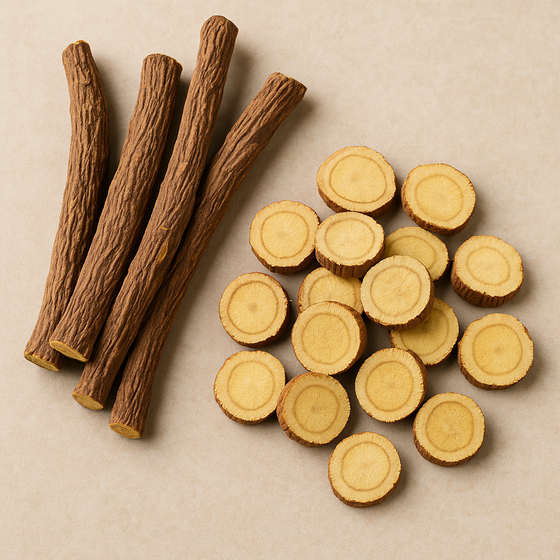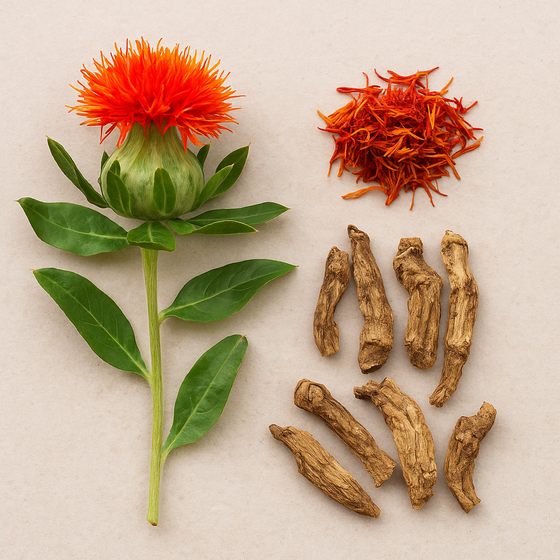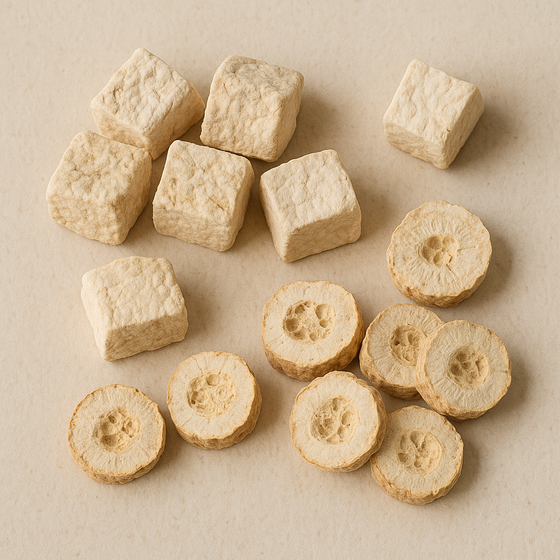
Baikal Skullcap Root (Huang Qin, 黄芩) has been a cornerstone of Traditional Chinese Medicine (TCM) for centuries. First recorded in the Shen Nong Ben Cao Jing (神农本草经), one of the oldest Chinese herbal texts, it remains a widely used Chinese medicinal plant today.
Whether found in herbal teas, powders, or supplements, Huang Qin continues to play an essential role in TCM herbal formulations. This guide explores its history, traditional use, and modern applications.
📌 [Insert One Image: Clean square photo of dried Baikal Skullcap Root on neutral background]
First documented in the Shen Nong Ben Cao Jing as a superior‑grade herb valued for clearing heat and detoxifying the body. Over time it became a staple for addressing:
| Property | Description |
|---|---|
| Chinese Name | Huang Qin (黄芩) |
| Latin Name | Scutellaria baicalensis |
| Nature | Cool |
| Flavor | Bitter |
| Organs Targeted | Lung, Stomach, Gallbladder, Large Intestine |
Today, Huang Qin is featured in both traditional formulas and modern herbal products:
Pharmacological studies highlight its flavonoids—baicalin, baicalein, and wogonin—demonstrating:
Source: NCBI – Pharmacological study of Scutellaria baicalensis flavonoids
Huang Qin (Baikal Skullcap Root, 黄芩) remains one of the most esteemed herbs in Traditional Chinese Medicine for its potent heat‑clearing and detoxifying properties. From ancient texts to modern research, it continues to support respiratory, digestive, and systemic health with time‑tested efficacy.
Have you experienced the benefits of Huang Qin? Share your story below!
Comments will be approved before showing up.
Gan Cao (Licorice Root, 甘草) is a harmonizing herb that balances the body, reduces inflammation, and supports the prostate. Used in nearly all classic TCM formulas, it soothes irritation, eases tension, and enhances overall synergy within herbal blends.
Hong Hua (Safflower, 红花) is a warm, acrid herb that invigorates blood, dispels stasis, and reduces pain. Traditionally used to enhance circulation and relieve inflammation, it supports prostate and urinary comfort through improved microcirculation.
Fu Ling (Poria cocos, 茯苓) is a mild yet powerful TCM fungus that helps clear dampness, support digestion, and calm the mind. Traditionally used to relieve urinary difficulty and edema, it’s a key herb for prostate comfort and inner balance.


